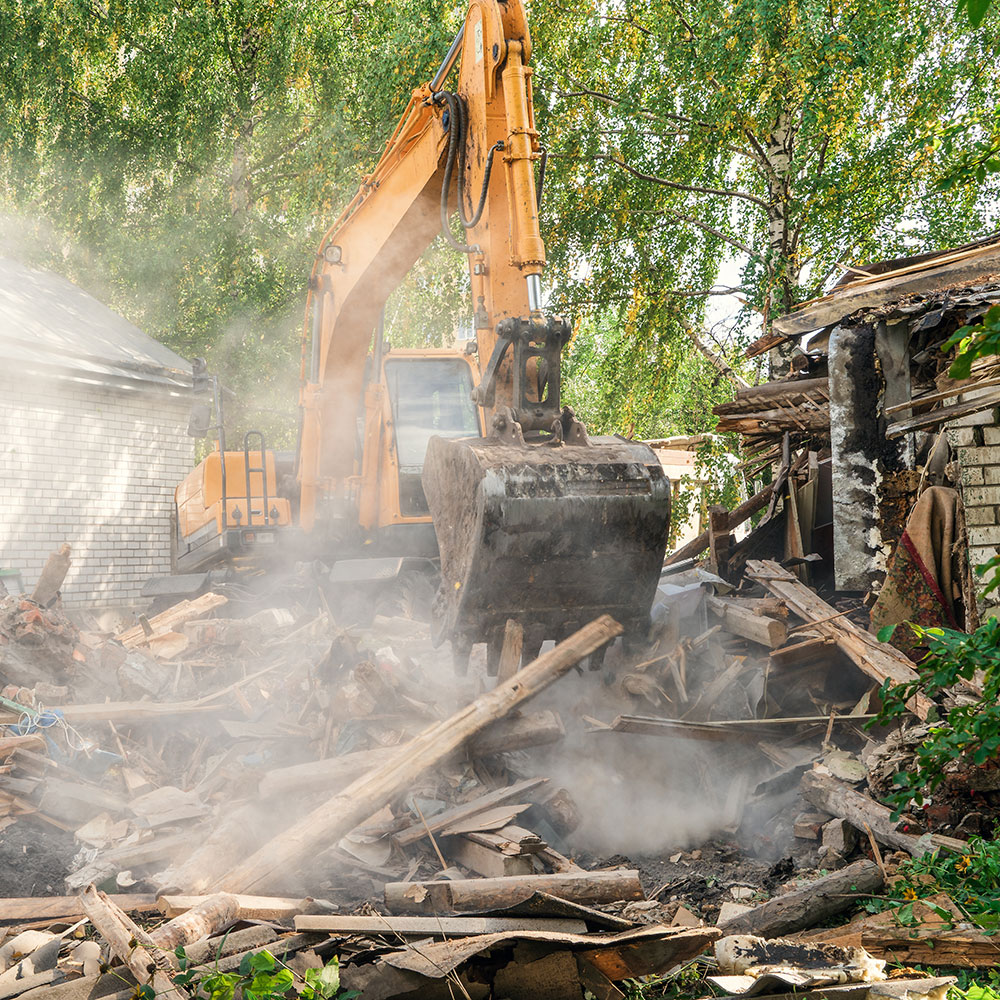
In Portland, if you want to tear down a residential building in its entirety, you first need to submit for a demolition permit. Yes, you need a permit to tear down a building! The initial submission includes an application, drawings, and fees. Yes, you also need drawings to tear down a building. But, wait, there’s more! There is a Residential Demolition Delay! You have to wait 35 days AND give the neighborhood time to provide feedback on the planned demolition.
What?!?
The Residential Demolition Delay is a mandatory 35-day waiting period mandated by City Code Title 24. After applying for a demolition permit for a one or two-family residential structure, project demolition cannot start until the 35-day waiting period is over.
But why?
In short, it provides a check for the city to address the devaluation of old neighborhoods by developers (or really anyone) scraping lots and building new buildings that are out of scale and character with the neighborhood. It also protects historic structures that are part of the fabric of what makes old Portland neighborhoods unique.
Portland did address the over-building part of that problem by incorporating FAR into the residential zoning code. So that just leaves the problem of building removal without big-picture oversight.
The Residential Demolition Delay provision addresses that big-picture by creating a process by which concerned parties can review the proposed removal, not just the building department. On one hand, it provides the time needed to consider if this property could save viable housing in the city. On the other, it informs the public. The delay raises project awareness and provides the community time to voice concerns. It also provides time for city bureaus to coordinate efforts to protect properties.
Which projects does the Residential Demolition Delay apply to?
The guidelines apply to all proposed full demolitions of one and two-family residential structures in Portland residential zones. It does not apply to residential buildings in commercial or industrial zones or to accessory structures, such as garages or outbuildings.
What is the Residential Demolition Delay process?
If you want to tear down a residential building, you first need drawings of the structure to be removed. They don’t have to be overly detailed, but they do need to record the basic plan, location, and volume for review. Then, you submit for a permit with the city, which will include an application and fee in addition to the drawings.
Next, the Bureau of Development Services (BDS) mails a written notice identifying the demolition project to all properties within 150 feet of the intended demolition site. Institutions with relevant relationships to the site and other architectural and historic preservation organizations also receive a notice.
Then, if no one objects to the demolition during the 35-day notice period, BDS issues a permit, and you’re free to demolish the building.
What if someone objects to the demolition?
After the notice is distributed, an interested or concerned party can object to the demolition at any point during the 35-day notice period. During that time, the objecting party must contact the property owner and request a meeting to discuss alternatives to demolition.
This results in more paperwork. The objector must submit an application, proof of the meeting request, and a fee to BDS. In this case, the objecting party carries the burden of proof. They must document the active pursuit of demolition alternatives. This documentation includes illustrating the community or architectural significance of the property. Furthermore, they need an actionable plan explaining the steps to save the structure, including physical and financial parameters.
If the objector submits all of these details, the Code Hearings Officer will extend the delay an additional 60 days. The extension provides the objector and the demolisher time to determine how to implement the plan.
What happens next?
An agreement or no agreement? After 60 days, either the objector and the demolisher agree upon a plan to save the building, or the Code Hearings Officer decides there is no agreement or viable plan. Lack of an agreement and no plan means the scheduled demolition proceeds with an issued permit.
Plan accordingly for Residential Demolition Delay.
As a Portland residential homeowner contemplating full demolition or a rebuild project, think about the significance of your structure and plan Residential Demolition Delay into your project timeline. Does this spark more project and code questions? Call us to discuss.
